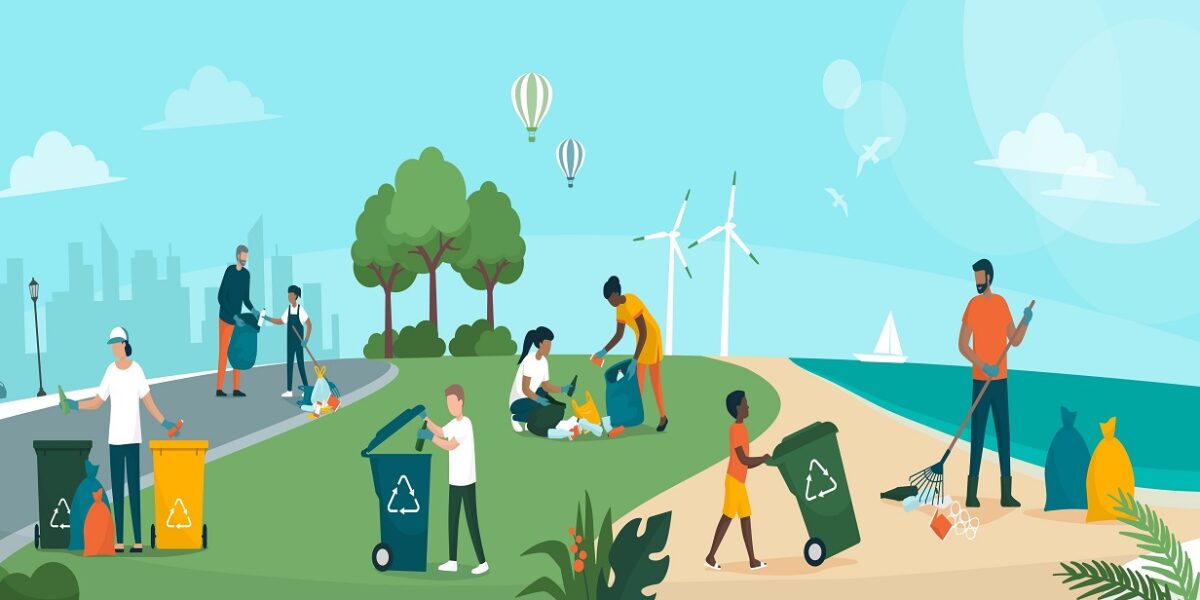
- Environmental Degradation
- Waste accumulation in gutters and water bodies disrupts ecosystems, blocks waterways, and increases the risk of flooding.
- Open waste burning releases harmful pollutants into the air, exacerbating climate change and environmental toxicity.
- Health Risks
- Polluted water sources expose communities to waterborne diseases like cholera and typhoid.
- Smoke and toxic gases from burning waste cause respiratory problems and other serious health conditions.
- Social and Economic Impact
- Poor waste management lowers the quality of life, affects aesthetics, and reduces tourism and investment opportunities in affected areas.
- Reduce Pollution
- Minimize environmental pollution by promoting proper waste disposal and recycling practices.
- Enhance Public Awareness
- Educate communities on the environmental and health impacts of pollution and the benefits of sustainable waste management.
- Support Cleaner Habitats
- Improve community sanitation and restore water bodies and public spaces through organized clean-up activities.
- Encourage Community Ownership
- Foster a culture of environmental responsibility and stewardship by involving local residents in waste management solutions.
- Community Education Campaigns
- Conduct workshops, public forums, and school programs to raise awareness about the dangers of pollution and the importance of proper waste disposal.
- Clean-Up Drives
- Organize volunteer-led clean-up events in neighborhoods, public spaces, along water bodies, and on the beaches to remove accumulated waste and restore the environment.
- Recycling Initiatives
- Introduce and promote recycling programs in collaboration with local governments and organizations to reduce waste and promote resource reuse.
- Alternative Waste Management Solutions
- Advocate for and support the adoption of sustainable waste management practices, such as composting and waste-to-energy technologies.
- Collaborative Partnerships
- Partner with municipal authorities, NGOs, and private sector players to develop waste management infrastructure and implement long-term solutions.
- Cleaner Communities: Reduced waste accumulation in public spaces, waterways, and streets.
- Improved Public Health: Decrease in waterborne diseases and respiratory issues caused by pollution.
- Environmental Restoration: Healthier ecosystems and improved water quality in affected areas.
- Community Ownership: Greater public participation and responsibility in maintaining clean and sustainable living environments.
Improper waste disposal and pollution are pervasive challenges in many African communities. Residents often dispose of waste in open spaces, gutters, and water bodies, contributing to environmental degradation, water contamination, and health hazards. The practice of openly burning waste, including car tires, compounds the issue by releasing toxic gases into the atmosphere. This module focuses on addressing these challenges through education, community engagement, and sustainable waste management practices.
The Hazards of Improper Waste Management
Goals and Objectives
Key Activities
Expected Outcomes
Our Impact
Addressing pollution and improper waste management is essential to creating healthier, more livable communities in Africa. By combining education, community action, and sustainable practices, this program aims to protect the environment, improve public health, and enhance the overall quality of life.
Our Activities and Projects
The list will be updated once projects are completed.
